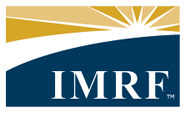Recent Public Acts signed into law: P.A. 97-0319 and P.A. 97-0328
August 15, 2011
On August 12, 2011, the governor signed House Bill 1471 (Public Act 97-0319) and House Bill 1956 (Public Act 97-0328) into law.
Executive Summary
On August 12, 2011, the governor signed House Bill 1471 (Public Act 97-0319) and House Bill 1956 (Public Act 97-0328) into law.
- Public Act 97-0319:
- Employer pension cost Pro-rate pension cost among multiple employers using a combination of service credit and final rate of earnings.
- Public Act 97-0328:
- Board of Trustees elections: Authorized Agents do not need to be an IMRF participant to submit a petition or cast a ballot
- Retired members returning to work: Retired members may return to work for an IMRF employer and keep their IMRF pension if the position requires less than the employer’s hourly standard
- Hourly standard: Non-education employers may increase their hourly standard to 1,000 hours
Dear Authorized Agent:
On August 12, 2011, the governor signed House Bill 1471 (Public Act 97-0319) and House Bill 1956 (Public Act 97-0328) into law.
Public Act 97-0319 made one change to the Pension Code, and Public Act 97-0328 made three changes. The new provisions are explained below.
Public Act 97-0319
- Employer pension cost
- Pro-rate pension cost among multiple employers using a combination of service credit and final rate of earnings
Effective date: January 1, 2012
Applies to members retiring on or after January 1, 2012
Old Law: If a retiring member participated with two or more IMRF employers (not concurrently), the cost to the employers for the member’s pension was pro-rated based solely upon the service credit the member earned with each employer.
New Law: If a retiring member participated with two or more employers (not concurrently), the pension cost will be pro-rated among the member’s employers based upon the service credit earned with each employer and the member’s final rate of earnings with each employer
Public Act 97-0328
- IMRF Board of Trustees elections
- Authorized Agents do not need to be an IMRF participant to submit a petition or cast a ballot
Effective date: August 12, 2011
Applies to all IMRF employers
Old Law: Only Authorized Agents who were participants of IMRF were eligible to submit a nominating petition or cast a ballot in an Executive Trustee election if their governing body delegated such powers on the notice of appointment.
New Law: All Authorized Agents, regardless of IMRF participation status, may submit a nominating petition and cast a ballot in an Executive Trustee election.
The Authorized Agents governing body must still delegate such powers to the Authorized Agent on his or her notice of appointment (Form 2.20).
- Authorized Agents do not need to be an IMRF participant to submit a petition or cast a ballot
- Retired IMRF members returning to work
- Retired members may return to work for an IMRF employer and keep their IMRF pension if the position requires less than the employers hourly standard
Effective date: August 12, 2011
Applies to all retired members
Old Law: Retired members had different return-to-work rules that were determined by the hourly standard of their former IMRF employer(s).
New Law:
- If a retired member returns to work for an IMRF employer in a position that meets or exceeds the employers hourly standard, the retirees pension will be suspended and the retiree will be required to participate in IMRF. Once the member retires again, his/her pension will resume and will be recalculated to reflect the additional service credit.
- If the retired member previously participated with a 600-hour employer and returns to that same employer in a position exceeding 600 hours (even if the employer has changed to a 1,000-hour standard), the retirees pension will be suspended and the retiree will be required to participate in IMRF. Once the member retires again, his/her pension will resume and will be recalculated to reflect the additional service credit.
- If a retired member returns to work for an IMRF employer in a position that does not meet or exceed the employers hourly standard, the retiree will not be enrolled in IMRF and the retirees pension will continue.
Please note: Members who retired under the Early Retirement Incentive are still prohibited from returning to work for an IMRF employer.
- Hourly standard
- Non-education employers may increase their hourly standard to 1,000 hours
Effective date: August 12, 2011
Applies to newly hired employees
Old Law: Non-education employers that joined after January 1, 1982, selected an hourly standard at that time, which could not be changed. Non-education employers that joined before January 1, 1982, could change their hourly standard to 1,000 hours for newly hired employees.
New Law: All non-education employers can change their hourly standard to 1,000 hours for newly hired employees regardless of when the employer joined IMRF.
Questions?
If you have any questions regarding the information presented in this memorandum, please send us a secure electronic message or call an IMRF Member Services Representative at 1-800-ASK-IMRF (1-800-275-4673), 7:30 a.m. to 5:30 p.m., Monday through Friday.

